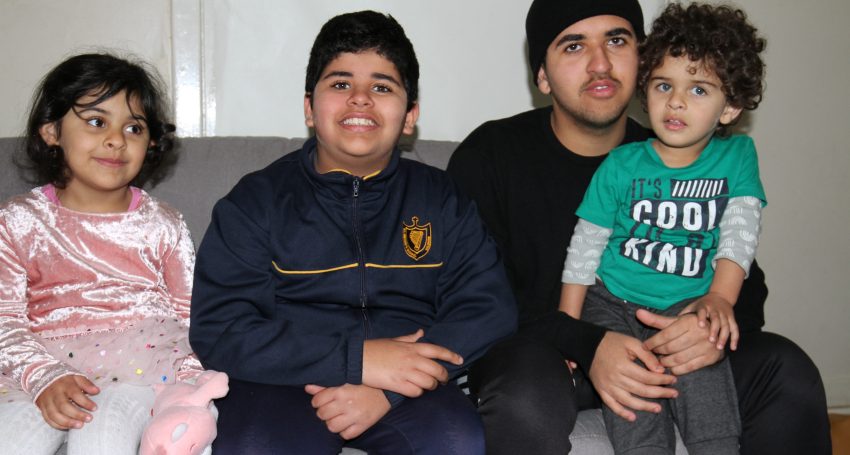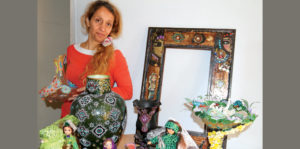The forgotten families
Opinion
Eleven-year-old Mustafa is a beautifully-spoken, polite boy with an infectious smile. His older brother Mohammad is articulate and engaging but when you look closely at his big brown eyes there is a seriousness and sense of responsibility that no 15-year-old kid should be burdened with.

It is heartbreaking to see children like Mohammad thrust into adulthood because of an unjust system that has impeded his parents in learning English, finding work, making friends and becoming part of the community.
It is a tragedy that they came to Australia in search of a safe haven and now, after seven years of living in limbo, they remain scared, stressed and confused.
These families are not living on Nauru or in detention, they are living in our suburbs. The children are going to school here, their younger siblings have been born here and some of the parents are even managing to work and are eligible to pay tax.
Advertisement
But they have no permanent status and are caught in a constant struggle with an immigration process that is fundamentally flawed.
Since COVID-19 hit many charities and volunteer organisations which assist people in filling forms related to visa applications and renewals have had to suspend these services, creating another barrier for people to remain lawful and maintain their access to rights that are linked to visas, such as Medicare and Centrelink.
These asylum seekers haven’t committed any crime, they have entered Australia seeking protection, as is their right under the Refugee Convention. They have entered irregularly, not illegally.
Both sides of politics are responsible – the Labor Government for reintroducing offshore detention and refusing any resettlement in Australia, and the Liberal Coalition for introducing the ‘fast track’ process which deliberately raised the bar for proof of refugee status.
Zahra weeps as she tells me how she felt when her application for a Safe Haven Enterprise Visa was rejected. She is normally the strong one in the family, caring for her husband with a disability and her two young, lively children.

Zahra with some of her traditional artwork which she would one day like to sell.
It doesn’t have to be like this. Her face lights up when she shows me the beautiful artwork she has made since coming to South Australia and tells me she dreams of one day teaching art again and open a gallery.
Her son Daniel, who has been through so much in his short life, proudly tells me how hard working his mum is. Not that I can’t see that as I walk into a kitchen crowded with catalogues that she distributes for a meagre amount of money.
Advertisement
While poverty and reliance on charity is a constant in these people’s lives, it is the threat of detention and deportation hanging over them that is clearly affecting their mental health.
When quietly-spoken Dil tries to explain how he feels about his claim being rejected, with the help of his bright young son Ibrahim, he refers to Australia’s national anthem. “It’s not like the song,” he says.
For the first time in my life I feel ashamed to be Australian.
Not only is it shameful that draconian policies are causing so much harm and stress for these families, it is scandalous that so few politicians are willing to speak up in their defence.
We hear the catchcry ‘we are all in this together’ during the COVID-19 pandemic but it’s a hollow promise for the forgotten families known as the ‘legacy caseload’ asylum seekers who have no access to JobSeeker or JobKeeper and yet are the first to lose their jobs as Uber drivers or cleaners.
Related Story
When hope turns to despair
And yet the pandemic provides us with a window of opportunity to help these people. Not only are the boats not coming, the planes are barely flying in or out of Australia, making it virtually impossible for the Federal Government to deport people or for more asylum seekers to arrive. Nor is it possible for the nation to take anywhere near its annual quota of refugees.
Imagine if the Government decided to extend the current moratorium on deportations to include a review and resolution of outstanding cases?
Wouldn’t it be wonderful if something positive like this was to come out of the devastating pandemic affecting people all over the world?
Maybe I’m dreaming but every time I remember Mustafa’s smiling face, Zahra’s tears or Dil’s gentle confusion, I can’t help but think it’s time we all stood up for these families before it’s too late.
To find out more about how you can help, visit www.refugeecouncil.org.au, www.vinnies.org.au and Circle of Friends www.cofa.org.au








Comments
Show comments Hide comments